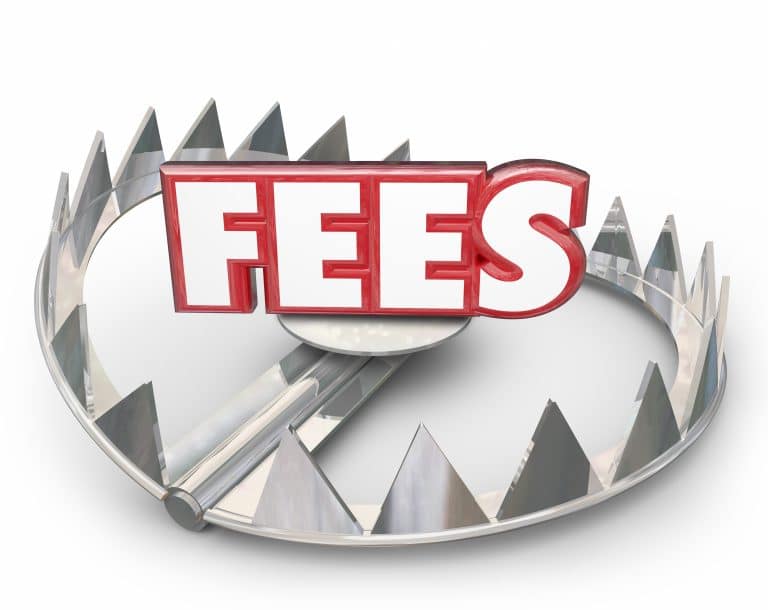Little fees can eat away at your retirement savings.
Your 401(k) offers you an outstanding retirement savings vehicle, with fees attached. Some of these fees are hard to detect unless you read the fine, fine print about what’s going on with your investments. Over time, those fees will cut into your retirement savings potential.
How high are these fees?
Typically, 401(k) annual fees run from .25% to 1.5%. The fees are subtracted right out of the savings in your account, and there is no requirement to notify you about them: when you get your quarterly 401(k) statement in the mail, you will find no line-item expense labeled “fees.” The bulk of these fees are for investment services. Most people who invest in 401(k)s invest in the significant mutual funds and have to pay these investment fees by law. (In response, some corporations have created their generic wholesale funds to give employees lower-cost options.) Some plans also charge fees for legal, administrative, record-keeping and even advertising costs.
The cost to you.
Over a 20- or 30-year period, these fees can affect the compounding of your assets. The Department of Labor offers an example: if you have $25,000 right now in your 401(k) and just let it sit there, and your investment returns average 7% across the next 35 years with 0.5% annual fees, you will end up with $227,000 in 2042. But if those annual fees are set at 1.5%, you will end up with only $163,000 in 2042. A 1% difference in fees and expenses would leave you with 28% less money for retirement. Wow.
Things may change.
In 2007, the Government Accountability Office issued a report commissioned by Congress that revealed that about 80% of 401(k) plan participants didn’t know how many fees they were paying, or how much in fees they are paying. Federal legislators have recently pushed to change the rules on 401(k)s and make the companies that manage them provide more explicit and more understandable information on fees. The GAO report urged Congress to require the disclosure of 401(k) fees to permit investors to compare plan options. That would essentially allow you and your co-workers to shop for a 401(k) program as never before.
If you want to learn more about how fees might be affecting your 401(k), or if you’d like to learn more about your options, I would recommend speaking with a qualified financial advisor. The conversation may help you to understand better your 401(k) and other investments you may have.
Disclaimer: These are the views of Peter Montoya, Inc., not the named Representative or Broker/Dealer, and should not be construed as investment advice. Neither the designated Representative or Broker/Dealer give tax or legal advice. All information is believed to be from reliable sources; however, we make no representation as to its completeness or accuracy. Please consult your Financial Advisor for details.



